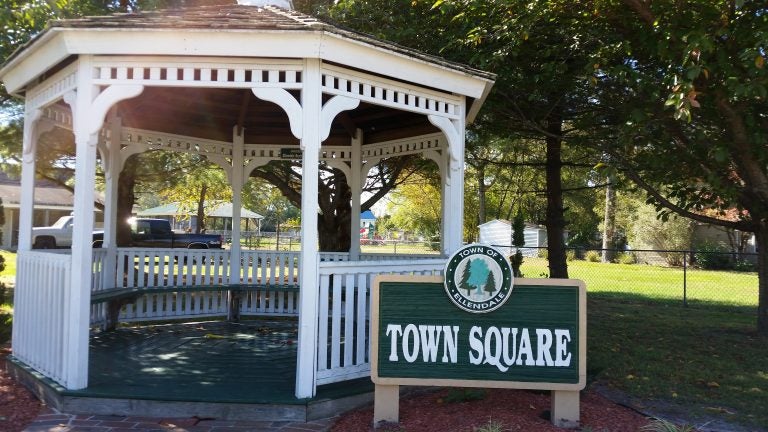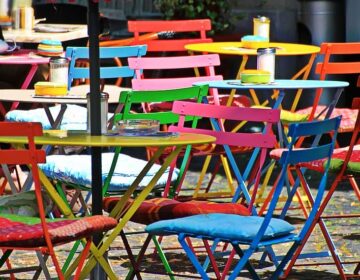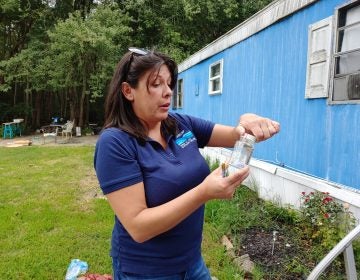Ellendale residents to vote on public water system for Delaware town
The well water has tested positive for high levels of nitrates and iron. There’s discoloration and also a possible bacterial contamination in some of the shallow wells.

Residents in Ellendale, Delaware, voted Saturday to have public water. For decades, many have contended with smelly, discolored water from wells. (Courtesy of Jean Holloway)
For decades, many residents in Ellendale, Delaware, have put up with smelly, discolored water from their wells.
The town does not have a public water system, so residents must take their chances with the dirty water — which some say smells like rotten eggs — or spend their money on bottled water.
On Saturday, they will have a chance to change that as they vote on whether to create a public water system for their town.
“If you can imagine going without drinkable water at your house, when you get in the shower, you can barely stand to bathe in it because it smells, or it doesn’t get clean because it’s so full of iron, your clothes look dingy, you have to buy bottled water — and a lot of these people are low and moderate income, they can’t afford to waste money on bottled water,” said Jean Holloway of the Southeast Rural Community Assistance Project, a regional nonprofit that has supported Ellendale residents.
“It’s an environmental justice issue, it’s an issue of fairness. Decent, clean water should be a basic human right,” she said. “Decent water is very available if you have the money — if you don’t have the money, it’s problematic.”
The well water has tested positive for high levels of nitrates and iron, said Hans Medlarz, Sussex County engineer. There’s discoloration and also a possible bacterial contamination in some of the shallow wells in town.
“The safety risk associated with nitrates are oxygen transfer interference,” he said. “And if you have bacteria, you can have intestinal problems, so these are immediate concerns and long-term concerns.”
For about 20 years, civic leader Harold Truxon has been pushing for clean water for Ellendale residents.
“In certain areas, the water is brown, and they can’t even wash their clothes or children,” said his son, Fentress Truxon. “Just stop and think for a minute — if you didn’t have any clean water to use, and you had to make extra provisions to pick up and retrieve water for bathing, cooking, drinking, and you had to do that every day.
“There’s some extra cost and stress on your family, the toll it takes upon you trying to climb this economic ladder,” he said. “Those of use who are blessed can turn a faucet on, you can use your toilet and flush it.”
Truxon said his father shifted the focus to county government when efforts to encourage the city to install a public water system failed.
Sussex County proposes to purchase water from Artesian Water and then supply residents, who would pay about $430 a year, or $6 per 1,000 gallons consumed. That’s a bit lower than the water bills of other Sussex County residents, said Medlarz.
But state code requires a referendum on the matter, and about 200 residents are expected to vote on it Saturday.
In November, an area wide referendum failed 120-107. Those against public water say they don’t want another bill to pay, despite the advocacy work of Truxon and others.
“We’ve done videos, we’re talking to people — telling them about mortality rates, telling them about the high cancer rate and what’s causing it,” Truxon said. “But you still have some that — no matter what you tell them — don’t want to spend another penny. That’s just the way it is.”
Holloway said residents are actually paying more for bottled water than they would for tap water.
“If they’re buying bottled water, they’re paying anything from 10 to 1,000 times as much as they would for tap water,” she said. “I think if they realized how much money they save by not buying bottled water, they would certainly take advantage of the wells once it’s proven to be safe.”
Those in favor of a public water system hope this referendum focused on a smaller area will succeed.
Terrence Neal, an Ellendale resident whose well water is cleaned through a filter, is appalled by the rust-colored, sometimes cloudy water of some neighbors.
“I would like to see those neighbors who aren’t affected by the bad drinking water or unsafe water look out for their neighbors,” he said. “In this case, we should be there for one another. If one has good water, we should all have it.”
WHYY is your source for fact-based, in-depth journalism and information. As a nonprofit organization, we rely on financial support from readers like you. Please give today.





